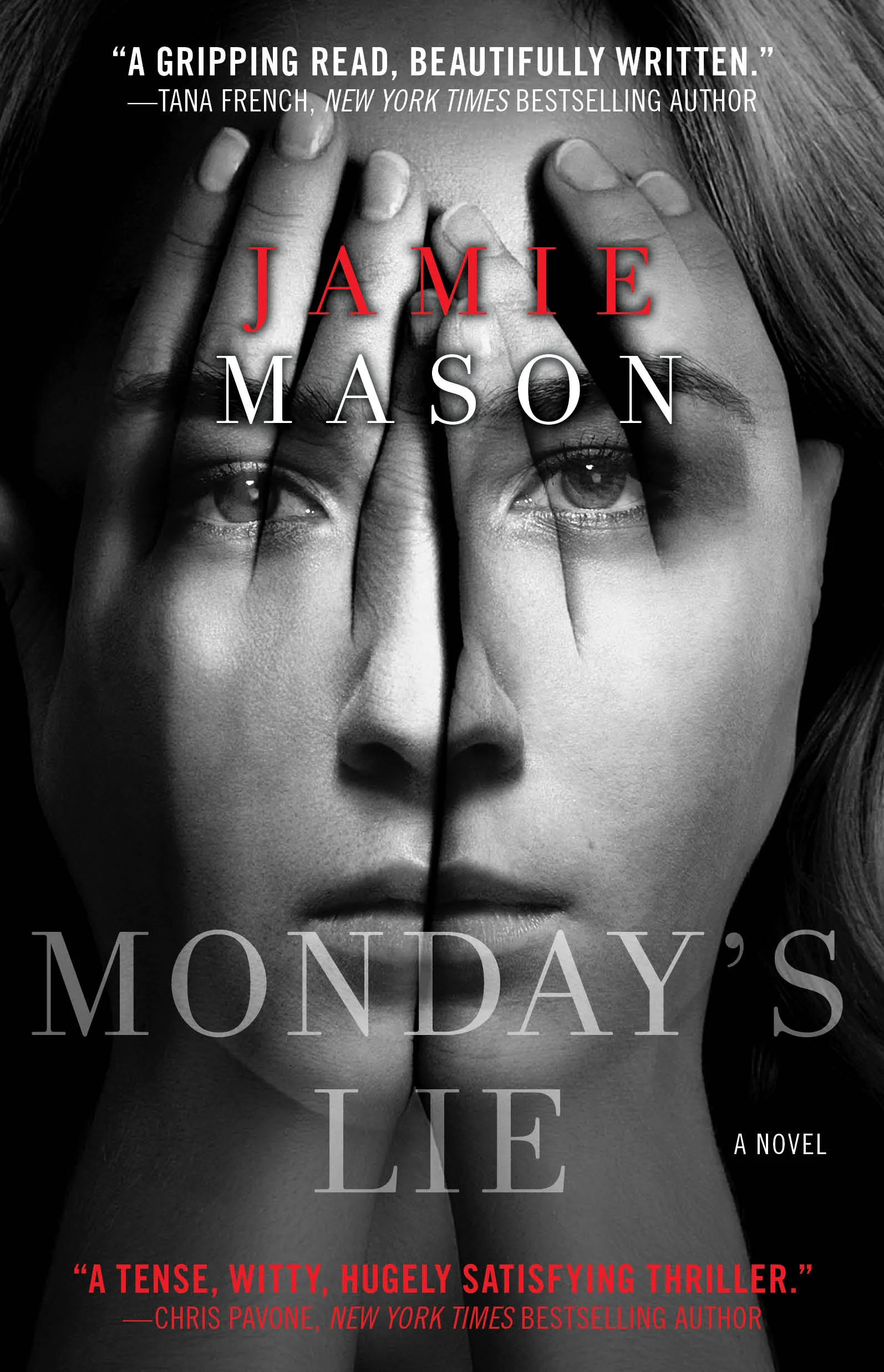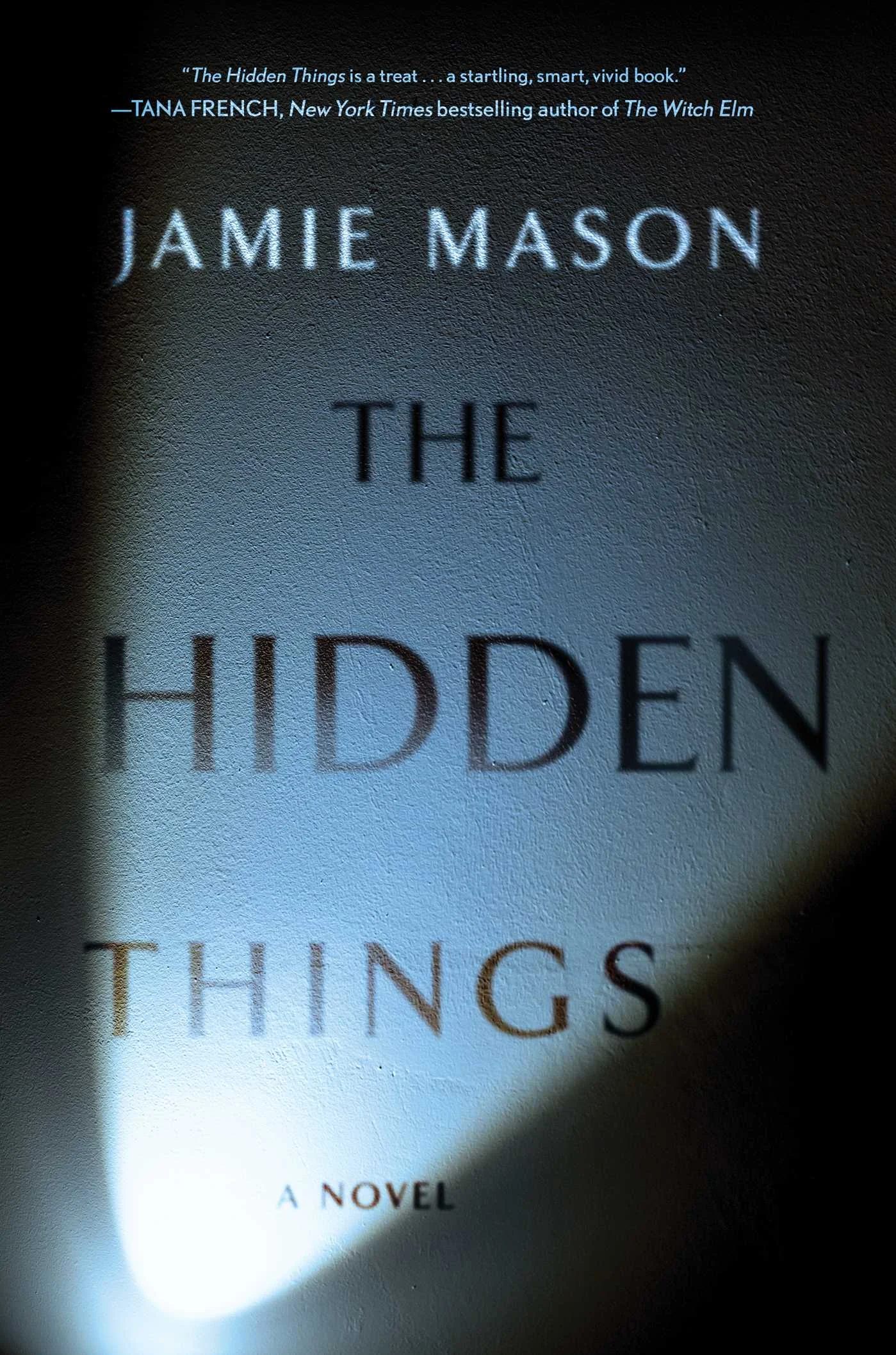I fell into banking as an adult and I used to try to make my business memos interesting and funny out of sympathy for the poor bankers and customers and vendors who had to read them. Sometimes people would say, “Jamie, you write the best memos. You should be a writer.” And yet, it still didn’t occur to me to actually try it until I was in my thirties.
Suspense author Jamie Mason writes ‘whydunnits’ filled with normal people finding themselves in dangerous, extraordinary situations. She tells us about her ongoing fight to be a more disciplined writer and the evolution of her outlining process.
Please give us a brief overview of yourself and your work
I grew up in the Washington, D.C. area and now live with my husband and two daughters in Western North Carolina.
The publisher says I write literary suspense, but I always say I write “whydunnits” not “whodunits”. I tend to be fascinated by imagining normal people finding themselves in dangerous, far-from-normal situations. My third standalone, The Hidden Things, is coming out on August 13, 2019 from Simon & Schuster’s Gallery Books. My first novel was Three Graves Full (2013) and my second, Monday’s Lie (2015) all from Gallery.
What made you want to be a writer?
The funny thing is when I was little I used to tell grownups, when they asked, that I wanted to be a writer when I grew up. But I was lying. I only said that because I was a kiss-up and it seemed to get a big reaction from them. It seemed ambitious to them, and maybe smart. It got me the virtual pat on the head.
What I didn’t realize is that I was constantly composing the story of my life as it happened in my head, in full-flowered sentences like I read in books. I was always an avid reader. Inventing narrative to explain feelings and actions, both of my own and of what I thought I understood about others. It was second nature to me because of all the reading, but I didn’t know I was “writing” in my head constantly.
I fell into banking as an adult and I used to try to make my business memos interesting and funny out of sympathy for the poor bankers and customers and vendors who had to read them. Sometimes people would say, “Jamie, you write the best memos. You should be a writer.” And yet, it still didn’t occur to me to try it until I was in my thirties.
How do you motivate yourself to write?
I wish I had a nobler answer. It’s the hardest part of the job for me. Unfortunately, I feel most alert and creative in the mid-afternoon into the evening – just about exactly the time when I should be doing other things.
It’s a constant fight to be better and more disciplined in my routine. So, well, I fight. I fight my distractibility, my reluctance, my self-doubt. Some days I win better than others.
How do you outline your work and begin writing?
I used to be a “pantser”. I’d have an idea and a general feeling for how I wanted everyone, the characters, the readers, and me, to feel about it at The End. Then I just tried to steer toward it.
It’s not a great way to work. Not for me anyway. Too stressful, wondering if there’s even a story there.
But over the years I’ve talked with hundreds of writers about their processes and their ideas on structure and outlining. Slowly, I’m developing my own process for organizing my thoughts in advance of the writing. Right now I combine a loose, bullet-pointed outline of the plot with character notes and a sketched in a chart that works along the lines of the 8-sequence theory of screenwriting.
Is there any particular incident that has happened along your writing journey that you’d like to share?
One serious thing and one that’s humorous spring to mind, so I’ll do both – quickly.
I’m a slow reader. A savorer. I love the words. So I write to the speed I read. The greatest writing compliment I ever got was when a woman at an event came up to me and said, “I almost threw your book across the room because I couldn’t skim it as I usually do. But I stayed with it and you gave me back the joy of reading slowly.” I will float around on that comment forever.
The funny one is that my wonderfully supportive and quirky sister who, when my first book came out, thought it would be a good promo opportunity to turn every single device in a Northern Virginia Best Buy – every desktop, laptop, and phone – to my book’s online page. They probably still have my picture above the registers and their security guards on alert to throw me out if they ever see me. BUT IT WASN’T ME! I SWEAR!
Do you have any advice for aspiring authors?
Learn about the business from reputable sources, but learn about craft from everywhere. Learn by reading books you love with a critical, hungry eye. And occasionally, finish a book you don’t like. It can be valuable to remind yourself of what you don’t want to be.
What do you think is the biggest challenge for new authors?
I think the challenges have long been the same. It’s hard to find the right relationship to the question of if you’re any good or not. Rejection is hard to quantify. When are you supposed to worry? Discouragement is everywhere. There are a thousand ways to feel inadequate. No one wants to be a quitter. But the Dunning-Kruger effect is real, too. Sometimes it’s nearly impossible to tell if what you’ve done lives up to what you intended to do.
Even worse than that: besides being good, you have to be lucky. Courting luck is a hard vocation.
What methods of book marketing do you find the most effective?
Marketing is so difficult to pin down. To augment whatever my publisher does for marketing and publicity, I’ve tried to cultivate a good online rapport with my writing community and the readers who seek me out. And I try to attend as many conferences and festivals as I can. You never know whose path you’ll cross who might become a supportive reader.
But you know what’s really good? Letting people know your excellent taste by promoting works you love by other writers. Recommend some good books and you’ll never look smarter.
Also, Bookstagram is really, really cool. Big love to Storygram Tours. They’re awesome.
What struggles did you face in the writing/ publishing process?
Oh, all of it. Rejection. Self-doubt. Disappointment. Frustration. Writer's block. Getting twenty thousand words in and knowing it’s not going to work.
How do you handle self-doubt/rejection as a writer?
Cussing. Crying. Whiskey. Sleeping. Giving up. Talking it over with a writer friend. Reading a good book. Missing the words and the sound of the keyboard. Trying again.
More or less in that order.
What is the best writing advice you have received?
In a story, you can make stuff up, but you can never lie.
You can find out more about Jamie via her website and social media channels: Facebook, Instagram and Twitter.

















